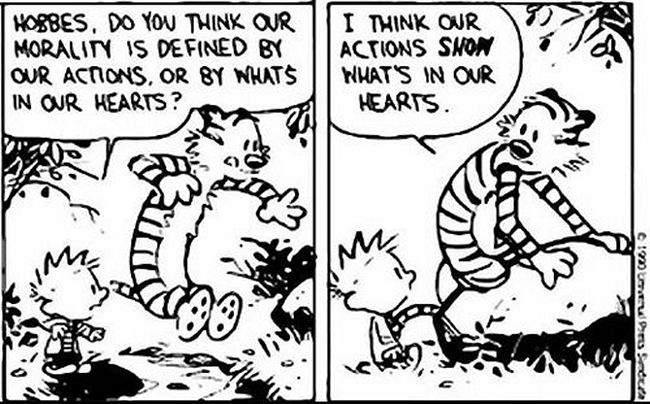Your cart is currently empty!
Rowboats in the Fog: Teaching Morality?
Have you ever felt like you were in the middle of a large fog-covered pond, in a row-boat with only one oar attached? There’s this distinct feeling that you’re not getting anywhere, but you’re not sure.
This is how I feel after reading the USA Today Viewpoint which appeared in the News-Leader on Sunday Aug 25. It is entitled “Shocked and inspired by the morality of a former student”, and is written by Larry Strauss, a high school English teacher in South Los Angeles and a member of USA Today’s Board of Contributors.
Thinking I’d be reading a fun and likely inspirational piece, I dove in. I was squirming before the first sub-heading, and by the time I was finished, I was in the aforementioned fog-covered rowboat. And I was worried Mr. Strauss might be as well.
Strauss sets up his piece with an anecdote about a former student who has made an admirable ethical decision in the face of adversity. Then, in an intriguing writing style, he begins to imply how rare this is among students these days.
Finally, Strauss moves to his premise and his calls to actions. It is here that the fog becomes thickest – at least for me – so I will confine my thoughts to this area.
As he closes, Strauss proposes – to all of us – “that we take it upon ourselves to develop the moral reasoning of our children.” (Fair enough.) Later, he narrows this call to teachers: “Let’s engage the moral reasoning of our students” and “We must model honesty and integrity.”
In between these calls, he makes this statement: “Of course, the first order of business is to make the schools moral institutuions where all children are safe and valued.”. Hold that thought.
Quick perspective check. Do I think that the nation is on the verge of a crisis in morality, one that extends throughout society, to both sides of the political aisle and to the highest offices of the land? Very possibly. Do I think that morality and ethical behavior should be modeled for all our youngsters at every level possible, and especially in schools? Heavens, yes! Do I believe the schools are or should be ‘immoral’ institutions? Get serious.
But something about Strauss’ assumptions and suggestions here bother me. Am I alone? Three quick questions:
- Does Mr. Strauss really believe the moral landscape is this bleak? Are the actions of his former student really an oasis in a desert of immorality? Granted, I’m not from South LA, but this feels like a weird over-reaction.
- Is Mr. Strauss really implying that that today’s teachers are simply NOT already, for example, ‘model(ing) honesty and integrity’?? Really? On behalf of the nearly countless classroom teachers I know, I think I’m insulted, and find his implications irresponsible.
- Finally, as to his ‘first order of business’ with schools. Do we really want our schools to be taking on the dangerous business of ‘teaching morality’? To be fair, Strauss only seems to go here because he claims religion has failed miserably at this. But still. Obviously, we want all educators to (continue to) model honesty and integrity for our children! But do we really want schools to be deciding, say, whether or not it’s moral/immoral to have easy access to high-powered weaponry or to marry a person of the same sex, or . . . ?
I remain mystified by this experience, for several reasons. Google the piece (‘Larry Strauss morality’) and see if I’m off-base. You might also bring me out an extra oar and some fog-lights.
******************


Comments
2 responses to “Rowboats in the Fog: Teaching Morality?”
I read Larry Strauss’s piece. Thanks, I love it. I agree with him and see his points clearly and fog free. He says pretty much what I would say. Students need to learn about the questions without being force-fed the answers. Questions like does the end justify the means and is “I was only following orders” a good excuse. To answer your first question, yes, south Los Angeles is why. The difference is that some people are forced to do immoral things as the lesser of two evils, but at least they know it. Too many don’t know and don’t care.
Thanks, Dan! Appreciate your input, as always. I would CERTAINLY agree that ‘students need to learn about the questions without being force-fed the answers’! I hope I didn’t imply otherwise.